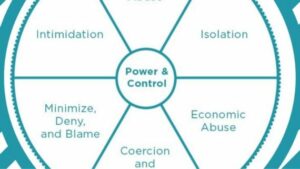In a world where relationships form the core of our human experience, understanding the stages of a dying marriage is both touching and essential. Every relationship, especially marriage, has its unique rhythm – a dance of highs and lows. Yet, when the lows overshadow the highs, it’s a wake-up call. And that’s what this post is all about. In today’s comprehensive guide, we will dissect these challenging phases to find out the signs of a dying marriage and seek ways to breathe life back into the waning relationship.

Signs of a Dead or Dying Marriage
Before we jump into the Stages of a Dying Marriage, we have some crucial points to discuss earlier. Yes, we want to talk about the signs of a completely dead marriage or a dying marriage. This is because you need to know the dead before the dying in the case of a relationship. In this regard, we have sorted out some 12 warning signs that tell us that the marriage is already dead or dying.
You Don’t Spend Time Together Anymore
Those nostalgic memories of picnics in the park, candlelit dinners, and spontaneous weekend getaways might now feel like pages from a long-forgotten book. If your calendars aren’t synced, and you’re more roommates than partners, it’s worrisome. Priorities shift, but if the marriage isn’t among them, it’s a clear sign of drifting apart. The essence of marriage lies in shared experiences, and when that diminishes, the emotional connection weakens.
Constant Conflicts Prevail Among You Constantly
All couples disagree. But if your living room feels more like a courtroom with daily trials, it’s problematic. Is every discussion turning into a debate? Every shared moment becomes a potential conflict zone. Such persistent disagreements sap out the joy from the relationship. Some of these conflicts may stem from deeper, unresolved issues or recent irritations. However, whatever the reasons are, these symptoms are dangerous. Because constant conflicts are regarded as one of the vital signs of a dead marriage.
All of Your Communication Goes Negatively
Imagine a sunlit room slowly being overshadowed until it’s plunged into darkness. That’s how negative communication affects a marriage. What was once cheerful banter may now seem like constant nitpicking. If the majority of your conversations produce negativity, sarcasm, disdain, or disappointment, it’s a warning sign for the married couple. Communication, when positive, acts as a bridge between you two; and when negative, it widens the fracture.
You Do Not Understand One-Another Anymore
When silent glances spoke volumes and a mere sigh conveyed a world of emotion – do you remember those days? If now, every gesture is misinterpreted, and words are often misconstrued, the bond is decaying. Relationships grow on the basis of mutual understanding. And the absence of it announces a growing emotional distance. That is why when you do not understand one another anymore implies a signal of a dying marriage.

You Lost Interest in Your Partner
Once upon a time, the simplest of their stories enthralled you. Their successes were your celebrations; their woes were your burdens. But if these emotions have been replaced by indifference or, worse, annoyance, the warning bells are ringing. Relationships flourish on mutual interest, compassion, and a shared journey. When partners become mere spectators in each other’s lives, or worse, indifferent observers, it’s one of the harsh signals of a dying marriage.
There’s no Respect
If love is the foundation of marriage, then respect is its pillar. Recollect the days when you held each other in high esteem, valued each other’s opinions, and cherished differences. If those feelings have been replaced by constant belittling, disregarding each other’s feelings, or frequent invalidation, it’s time for a reality check. Disrespect whether it is overt or covert, chips away at the bond and leads the relationship to faithlessness.
Both of You are Always Digging Up the Past
Marriage is a journey forward. However, if you find yourselves frequently digging up past mistakes, arguments, or issues, it’s problematic. Holding onto past displeasure prevents forward movement. When old wounds are revisited more often than cherishing present moments, it signifies an inability to let go and move ahead. This not only hinders emotional growth but also suffocates the relationship.
There is an Emotional Disconnection Between You
Emotional intimacy often holds more weight than physical intimacy. It’s about being vulnerable, sharing fears, dreams, and everything in between. If conversations have become purely transactional, or if silences are no longer comfortable, the emotional thread is snapping. When partners feel they’re walking on eggshells or withhold feelings fearing misunderstanding, they’re in one of the dire stages of a dead marriage.
There are Both Verbal and Physical Abuses
No marriage or relationship should endure abuse, be it verbal, emotional, or physical. It’s not just a sign; it’s a loud alarm. Abuse shatters trust, self-worth, and the very essence of love. If either partner practices name-calling, belittling, physical harm, or intimidation, immediate help should be sought. Love should empower, not imprison. So, that relationship is already dead where physical, emotional, and verbal abuse is present.

Infidelity Prevails Between You Two
Infidelity, whether emotional or physical, is a significant breach of trust. It’s not just about the act, but the secrecy, deception, and emotional turbulence it brings. If fidelity is compromised, or if temptations outside the marriage overshadow the bond within, it’s a glaring indication of deeper issues. So, when you feel infidelity in your partner, it’s a sign which tells you that your marriage is dying.
You Feel Lonely Even with the Presence of Your Partner
Loneliness isn’t about being alone; it’s about feeling unloved, unnoticed, or unappreciated. If, despite sharing a home, bed, or even a life, you feel a void, it speaks volumes. Marriages are about companionship, and when one feels isolated in its presence, it’s one of the most severe stages of a dying marriage.
You Fight without any Valid Reason
Fighting about the misplaced sock or the choice of dinner often masks deeper issues. When fights become frequent, explosive, and without apparent reason, it’s a symptom of underlying discontent. It’s essential to recognize if these are mere surface eruptions of deeper volcanoes of unresolved feelings or differences. If you find some deeper issues, you should be notified that your marriage is dying and needs instant fixing.
Explore the 17 Stages of a Dying Marriage
“Stages of a Dying Marriage” is a touching exploration of the complex and often painful journey that couples go through when their partnership begins to decay. In this journey, we will dive into the various phases of a dying marriage. In addition, we will shed light on the emotional turmoil, communication breakdowns, and external factors that contribute to its deterioration. So let’s start.
Stage 1: Healthy Relationship
Every marriage begins here: filled with dreams, love, and harmony. This stage is characterized by mutual respect, understanding, trust, and open communication. Both partners feel valued, heard, and cherished. Differences are celebrated, and conflicts are resolved with maturity. It’s the golden phase that lays the foundation for the journey ahead.
Stage 2: The Feeling of Unhappiness
A slight shift from the rosy phase, here, occasional feelings of discontent emerge. They might be temporary and often dismissed. There’s an underlying feeling that something is missing, but it’s hard to pinpoint. This stage of unhappiness actually signals the need for introspection and open dialogue. If you are in this stage, please practice self-examination and open dialogue with your partner to stop it right here. If you let this situation go unnoticed, your marriage may have to pay a heavy price in the future.
Stage 3: You Feel Lonely
Despite being in a relationship, a shadow of loneliness creeps in. Partners might start to lead parallel lives with minimal intersection. Conversations become routine, and emotional sharing diminishes. It’s a stage that screams for reconnection and rekindling lost intimacy. So, we suggest, do not ignore this loneliness in relationships. Rather find the reasons behind it and fix it as soon as possible.

Stage 4: Doubt Arises
As the journey progresses, the occasional clouds of doubt start forming. “Did I make the right choice?” or “Is this the life I envisioned?” Such questions, though natural, can arise. Doubts can stem from personal insecurities, external influences, or genuine concerns about the relationship. Addressing these doubts head-on and seeking clarity is crucial at this juncture. If doubt has arisen in your marriage, your marriage is going through a crucial stage.
Stage 5: Rise of Disinterest
Picture this: You and your partner used to have a blast doing things together. But lately, it feels like your separate interests are taking over. You might find yourselves diving headfirst into work, hobbies, or hanging out with friends, almost like your marriage has taken a back seat. During these times, you might notice that you’re not dreaming together as much, having fewer heart-to-heart talks, and just feeling like you’re slowly drifting away from each other. But guess what? Recognizing this drift and making an effort to find shared interests again can be like a rescue rope for your relationship. On the other hand, this situation can be considered an important stage of your dying marriage.
Stage 6: Disillusionment
You know that phase when you start seeing your partner without those rose-colored glasses? Suddenly, those eccentric habits that used to be cute are seriously annoying. It’s like the fairy tale has faded, and you’re left wondering if it was all just a story. This time can be a bit of a rollercoaster with moments of denial, acceptance, and a longing for those magical early days. But here’s the silver lining: It’s a chance to build a more down-to-earth, genuine relationship, one that’s based on reality, not just fantasy.
Stage 7: Negative Communication
You know, lately, it feels like we’ve been having more little disagreements and misunderstandings. Remember when our chats used to be all about sharing laughs and making memories? Somehow, it feels like we’re drifting a bit, maybe not feeling as heard or appreciated as before. Sometimes it even seems like we’re always on our toes, ready to defend ourselves. We should take a moment, breathe, and get back to those heart-to-heart talks, filled with kindness and patience. It’d be so nice to reconnect and truly listen to each other again. Let’s try and bring back that warmth in our conversations. And if we act the opposite, this marriage will not be able to go too further.
Stage 8: Negative Comparisons
Comparing one’s partner or relationship unfavorably to others is a slippery slope. “Why can’t you be like him?” or “Their relationship seems so much better!” Such comparisons sow seeds of discontent. And this comparison leads to further disconnection. Recognizing that every relationship has its rhythm and challenges is essential. If you or your partner fail to understand the rhythm of your relationship, your marriage will certainly go through a crucial stage.
Stage 9: You Spend Little Time Together
Life gets busy, But if calendars never align and ‘we-time’ becomes a rare luxury, alarm bells should ring. In this stage of a dying marriage, you spend little or no time together. Perhaps, you do not enjoy spending time together like the good old days. When parallel living overshadows shared life, the connection between you two weakens. This phenomenon is considered one of the stages of a dying marriage.
Stage 10: Lack of Intimacy
Intimacy, both emotional and physical, is the heartbeat of a marriage. In this stage, hugs become formalities, conversations turn purely transactional, and the heartbeat falters. It’s not just about physical closeness but the shared vulnerabilities, dreams, and fears. Rekindling intimacy often requires conscious effort, understanding, and sometimes, external help. And if you fail to rekindle intimacy, your marriage will have to pay a heavy price for that.

Stage 11: Lack of Trust
You know, trust is kind of like the glue that holds everything together. If that trust starts to wiggle because of lies, mistakes, or just too many letdowns, it feels like we’re walking on a cranky bridge. But hey, even if that bridge feels shaky, we can always find a way to fix it. Getting that trust back might be a bit tricky, but it’s totally doable. All we need is to be open with each other, stay true to our promises, and give it some time. We got this! But remember, if you do the opposite, your marriage is in trouble.
Stage 12: You’re Not Putting Forth Any Effort
So, think of marriage as a plant. Just like plants need water and sunlight, marriages need some TLC too. If we stop trying to understand each other or make amends when things go wrong, it’s kind of like forgetting to water that plant. When we start thinking, “Why even try?”, it’s a sign our plant might be wilting. Likewise, in this stage of your marriage, when you stop putting forth any effort, your marriage wilt away. And that is why this is one of the most important stages of a dying marriage. But the good news? Just like plants can bounce back with a little care, we can too. All we need is for both of us to roll up our sleeves, give it some love, and remember why we planted that seed in the first place. Let’s keep our garden blooming!
Stage 13: Distance and Disconnection
You know how sometimes, when we’re not around each other much, it feels like we’re drifting apart a bit? Like when our chats are just about the day-to-day stuff and we stop sharing those little moments or feelings that make us laugh or cry. It’s like there’s this growing space between us. This growing space actually implies the endangered state your marriage is going through. But the cool thing is, once we notice that space, we can totally do something about it! Just a few steps closer to each other, maybe some longer chats or shared memories, and boom – we’re back on track, sailing smoothly together. Let’s keep that bond strong!
Stage 14: Constant Conflicts: Crucial Stage Among All Stages of a Dying Marriage
The 14th stage of a dying relationship is the constant conflict. Beyond the regular disagreements, if conflicts become the order of the day, it’s a sign of deeper issues. These aren’t just disagreements but manifestations of underlying resentments, unmet expectations, or unresolved issues. When you have arrived at this stage, your marriage seems to be almost dead. And if you can address the root causes you can pave the way for harmony.
Stage 15: Your Priorities Have shifted
If career, friends, hobbies, or personal pursuits consistently overshadow the relationship, it’s indicative of shifting priorities. A successful marriage requires it to be a top priority. So, when your priorities have shifted from your marriage, your marriage must be going through a critical stage.

Stage 16: Disrespect
Name-calling, belittling, or constantly undermining the partner decays the relationship’s very foundation. Mutual respect is non-negotiable in a flourishing marriage. And when respect becomes absent in a marriage, the relationship becomes most vulnerable. And guess what? This is one of the prime stages of a dying marriage.
Stage 17: You Give Up on Your Marriage and Move On: The Last Among the Stages of a Dying Marriage
The most heart-wrenching stage. Here, one or both partners feel the journey has reached its end. Whether due to insurmountable differences, external influences, or a mix of reasons, the belief is that separation might be the best course ahead. Such decisions, though painful, require maturity, understanding, and often, external guidance.
Steps to Retrieve a Dying Marriage
Every marriage has its highs and lows, like a dance with ever-changing rhythms. But when the music starts to fade and the dance feels out of sync, it’s crucial to take a step back, tune in, and realign. Whether it’s miscommunication, lack of quality time, or deeper-rooted issues, it’s essential to understand that with effort and commitment, the rhythm can be restored. In this phase, we’ll dive into practical steps to breathe life back into a marriage that might be losing its spark. Ready to reignite the flame? Let’s dive in!
Forgive Your Partner
Forgiveness isn’t just a word; it’s an act of love and liberation. Holding onto anger, past mistakes, or deep-seated annoyance leads the relationship to negativity. Letting go and forgiving might seem challenging, especially when hurt runs deep, but it’s a crucial step in healing. Remember, forgiveness doesn’t necessarily mean forgetting, but it does mean moving forward without the burden of past pains.
Fix Communication
Open, honest, and constructive communication forms the skeleton of any flourishing relationship. If misunderstandings have become frequent, or if silences have turned suffocating, it’s time to revisit the basics. Whether it’s starting ‘we-time’, seeking counseling, or just committing to more open dialogue, mending the channels of communication can reignite the lost connection.
Try to Get Physical
Rekindling physical intimacy can often pave the way for emotional closeness. This doesn’t only mean sex but also includes simple gestures like holding hands, hugging, or just spending time close to each other. Touch has a therapeutic, reassuring quality that signals love, care, and the desire to be close.

Take It Positively
A positive outlook can work wonders. Instead of focusing on what’s missing or what went wrong, shift the lens to possibilities, growth, and a brighter future. Celebrate small wins, cherish moments of togetherness, and constantly remind each other of the love and bond you share.
Practice Genuine Empathy
Empathy isn’t about agreeing but understanding. Walk in your partner’s shoes, see the world from their perspective, and truly grasp their feelings. Such an approach bridges gaps, reduces conflicts, and strengthens the bond. And all these activities pull a marriage out of the challenging stages of a dying marriage.
Spend Quality Time with Each Other
In today’s fast-paced world, ‘quality’ trumps ‘quantity’. Dedicate exclusive time for each other, devoid of distractions. Whether it’s a simple date night, a weekend getaway, or just an evening walk, ensure that the moments spent together are meaningful, nurturing the relationship.

Seek Therapy
There’s no shame in seeking help. Marriage counseling or couples therapy provides a neutral ground to voice concerns, understand underlying issues, and seek guided solutions. A trained therapist can provide insights, tools, and techniques to rebuild and strengthen the marital bond.
Points to Remember at The Stage of Marriage Breakdown
Navigating the tumultuous waters of a marriage on the brink is undeniably challenging. As emotions run high and hope seems distant, it’s essential to anchor ourselves with clarity, compassion, and understanding. During these trying times, certain key insights can provide guidance and perspective. In this phase, we’ll explore essential points to keep in mind during a marriage breakdown, ensuring that whatever the outcome, both partners approach it with empathy and respect. Let’s start exploring.
Acknowledge the Problem
Denial is a common defense mechanism, but it doesn’t help. Accepting that there’s a problem is the first step towards resolution. Address the elephant in the room, discuss the issues, and commit to finding solutions. Burying concerns will only lead to bigger eruptions later.
Seek Professional Help
Whether it’s therapy, counseling, or legal advice, professional guidance can be invaluable. They provide an objective perspective, a structured approach, and expert solutions that might be challenging to achieve independently.
Take Time for Self-Reflection
Before pointing fingers, introspect. Understand your role in the relationship dynamics. This isn’t about self-blame but about self-awareness. Realizing one’s actions, behaviors, and patterns can pave the way for personal growth and improved relationship dynamics.

Prioritize Self-Care
A healthy relationship starts with healthy individuals. Take time for yourself, engage in activities you love, and prioritize mental and physical well-being. When individuals are content and balanced, it positively influences the relationship.
Be Open to Change
Change is the only constant. Be it personal habits, communication styles, or even expectations, being adaptable can save a marriage from dwindling. Embrace change as an opportunity for growth, both individually and as a couple.
Consider All Options
If efforts to mend don’t seem fruitful, evaluate all options, including separation or divorce. Sometimes, parting ways might be the best solution for both parties, ensuring peace, happiness, and a chance at a fresh start.
Why Should You Consult a Divorce Lawyer?
Moving the end of a marital chapter is as complex as it is emotional. While it’s a deeply personal decision, the practical aspects of divorce can be labyrinthine and overwhelming. Having a guiding hand in the form of a divorce lawyer can simplify the process, safeguarding rights and ensuring a fair resolution for both parties. In this phase, we’ll shed light on the invaluable role of a divorce lawyer and the reasons for seeking their expertise during such a pivotal time. Ready to understand the legal landscape better? Let’s delve in.
They Provide legal advice
Navigating the complexities of divorce laws can be overwhelming. A divorce lawyer can offer clarity on rights, obligations, and the legal implications of decisions. Their expertise ensures that one doesn’t inadvertently forfeit rights or take steps that might adversely affect the outcome of the divorce proceedings.
They Represent You in the Courtroom
If a divorce leads to court proceedings, having an experienced lawyer by your side is invaluable. They present your case, argue on your behalf, and ensure that your voice and concerns are effectively communicated in a legal setting, increasing the chances of a favorable outcome.
Thay Draft Your Legal Documents
The divorce process involves a plethora of legal documents. Missteps in drafting or filing these can have significant repercussions. Lawyers ensure that all documents are accurately prepared, filed, and served, adhering to the legal formalities and timelines.
They Help You with Property Division
Property division can be a contentious issue. A lawyer can offer guidance on equitable distribution, taking into account both marital and separate assets. Their involvement ensures that property division is fair and in line with legal entitlements.

They can Assist with Child Custody and Support
When children are involved, their well-being becomes paramount. Divorce lawyers help navigate the intricacies of child custody, visitation rights, and support payments, always prioritizing the child’s best interests.
They Provide Emotional Support As Well
While primarily legal experts, divorce lawyers often play a pivotal role in providing emotional support. They’ve seen numerous cases, understand the emotional turmoil, and can offer both a listening ear and pragmatic advice during tough times.
Update your estate plan
Post-divorce, it’s essential to revisit and revise estate plans, including wills, trusts, and beneficiary designations. Lawyers ensure that one’s estate planning reflects the new life circumstances, safeguarding future interests.
FAQs
Some of the common and key signs of a dying marriage are constant conflicts, emotional disconnection, negative communication, and a lack of intimacy or trust.
Absolutely. Therapy offers a safe space for couples to communicate, address underlying issues, and work on solutions.
Communication is crucial. It bridges gaps, resolves misunderstandings, and fosters closeness.
When amicable resolutions seem elusive, and the idea of parting ways becomes prominent, it's wise to seek legal counsel. What are the common signs of a dying marriage?
Can therapy help in reviving a dying marriage?
How important is communication in mending a marriage?
When should one consider consulting a divorce lawyer?
Conclusion
Recognizing the stages of a dying marriage is heartbreaking yet crucial. Every relationship has its ups and downs, but consistent negative patterns signal deeper issues. The journey from recognizing the signs to considering legal interventions is emotionally taxing. But armed with awareness, a positive mindset, and the right support – be it therapeutic or legal – couples can navigate these choppy waters. Whether the outcome is a rejuvenation of the bond or a mutual decision to part ways, what’s paramount is the well-being and happiness of both partners.
References
- Gottman, J. M., & Silver, N. (1999). The Seven Principles for Making Marriage Work. New York: Crown Publishers.
- Chapman, G. (2015). The Five Love Languages: How to Express Heartfelt Commitment to Your Mate. Chicago: Northfield Publishing.
- American Psychological Association. Marriage & Divorce.
- 17 Stages of a Dying Marriage: Warning Signals to Watch Out For - October 29, 2023
- 7 Signs of a Female Narcissist: From Seduction to Manipulation - October 28, 2023
- 8 Signs You Were Raised By A Toxic Mother. - October 9, 2023



![Read more about the article [19 Adorable Reasons] Why Does My Girlfriend Bite Me?](https://www.smartrelationshiptips.com/wp-content/uploads/2023/09/Why-Does-My-Girlfriend-Bite-Me-Thumb-300x169.jpg)

